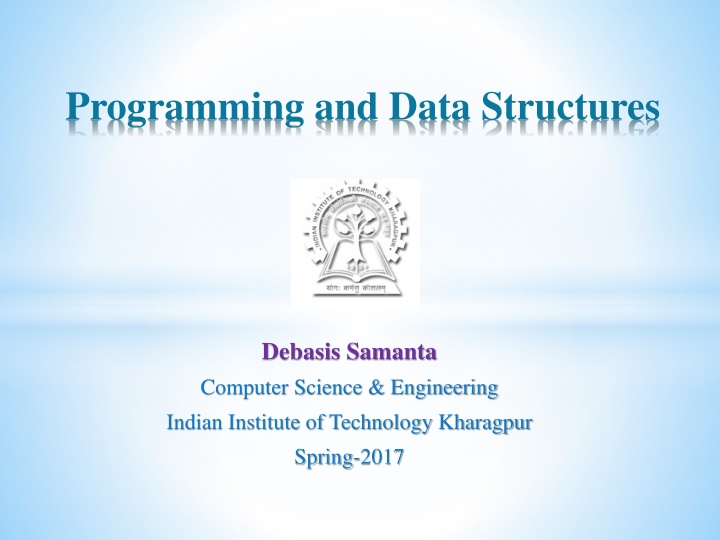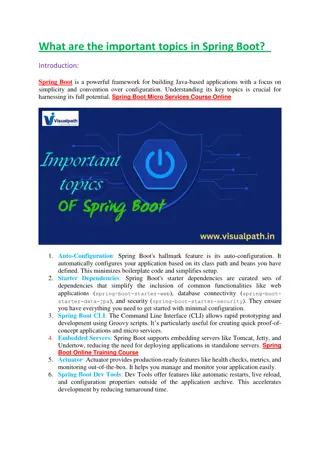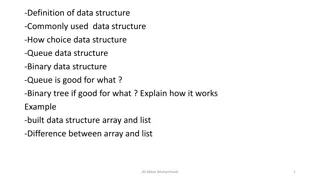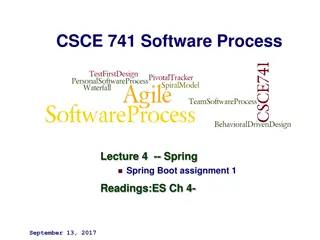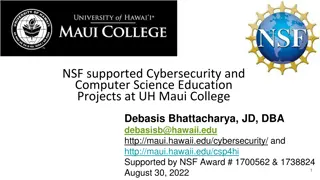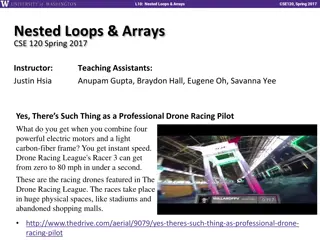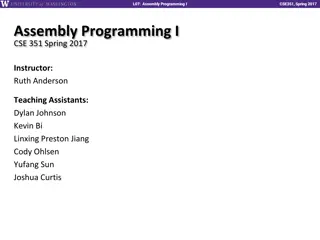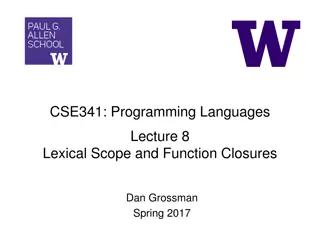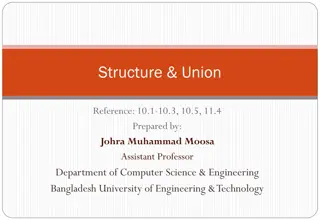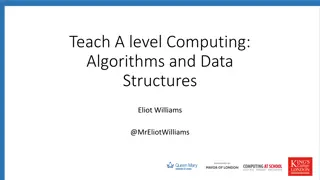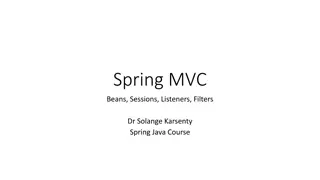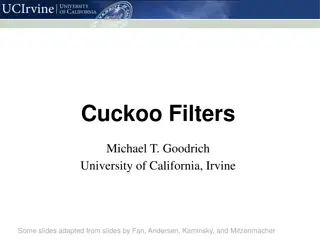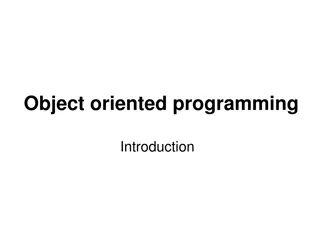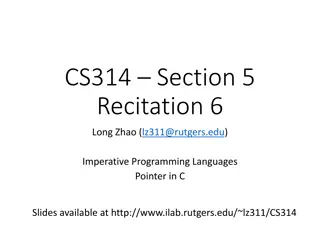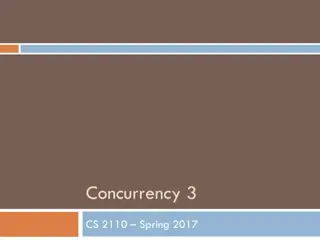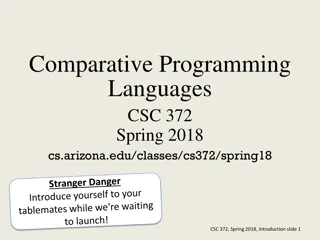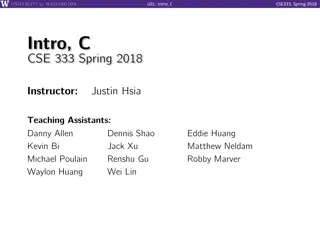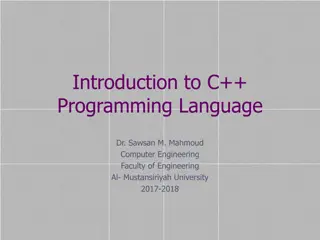Programming and Data Structures - Debasish Samanta - Spring 2017
Course covering basics of computing, programming in C, and various data structures for problem-solving. Includes syllabus, objectives, study materials, and course organization details.
Download Presentation

Please find below an Image/Link to download the presentation.
The content on the website is provided AS IS for your information and personal use only. It may not be sold, licensed, or shared on other websites without obtaining consent from the author.If you encounter any issues during the download, it is possible that the publisher has removed the file from their server.
You are allowed to download the files provided on this website for personal or commercial use, subject to the condition that they are used lawfully. All files are the property of their respective owners.
The content on the website is provided AS IS for your information and personal use only. It may not be sold, licensed, or shared on other websites without obtaining consent from the author.
E N D
Presentation Transcript
Programming and Data Structures Debasis Samanta Computer Science & Engineering Indian Institute of Technology Kharagpur Spring-2017
Todays discussion *Semester organization *Syllabus *Course objective *Course plan *Reference and study materials *Course web page *Contact details
Course organization *Title: Programming and Data Structures *Code: CS10001 / CS11001 (for Section 4 and 5) *Credit: 3-0-0 = 3 *Slot: E *Timing Wednesday: 12:00-12:55 Thursday: 11:00-11:55 Friday: 09:00-09:55 *Venue: NR121, Nalanda Complex, Ground Floor
Course objective This course will cover basics of computing, programming in C and the different data structures to solve many problems. In summary, this course will provide exposure to theory as well as practical aspects of programming. After completing this course, you will be able to learn how to: *Write programs in C programming language *What are the different data structures known to solve problems *How to solve problems
Syllabus * Introduction to digital computers * Basic programming constructs * Variables and simple data types * Assignments * Input/output * Conditions and branching * Loops and iteration * Iterative searching and sorting algorithms * Advanced programming constructs * Functions and recursion * Recursive sorting algorithms * Arrays and strings * Structures * Pointers and dynamic memory allocation * File Handling * Data structures * Stack * Queue * Linked lists * Performance analysis of programs
Study materials Books for C Programming 1. The C Programming Language, Brian W. Kernighan and Dennis M. Ritchie, Prentice Hall of India. 2. Schaum s Outline of Programming with C, Byron Gottfried, Tata McGraw-Hill Books on Data Structures 1. Data Structures, Schaum s Outline Series, Seymour Lipschutz, Tata McGraw- Hill 2. Fundamentals of Data Strcutures in C , Ellis Horowitz, Satraj Sahni and Susan Anderson-Freed, W. H. Freemn and Company 3. Classic Data Structures, D. Samanta, Prentice Hall of India. Take the help of the Internet, if you need
Study materials Web references: http://cse.iitkgp.ac.in/~pds/ Some useful software: http://cse.iitkgp.ac.in/~pds/software/ Notes: http://cse.iitkgp.ac.in/~pds/notes/ Course related information and announcements: http://cse.iitkgp.ac.in/~pds/semester/2017a/ http://www.nid.iitkgp.ernet.in/DSamanta/ These resources are very carefully developed and really good
Evaluation plan Distribution of Marks: * Class Test I: * Mid-Sem Test: * Class Test II: * End-Sem Test: 10% 30% 10% 50% Important Dates: * Class Test I: * Mid-Semester: * Class Test 2: * End-Semester: Thursday 02, 2017, 19:00 20:00 (tentative) February 13-21, 2017 (specific date will be known in due time) Wednesday 15, 2017, 19:00 20:00 (tentative) April 20-28, 2017 (specific date will be known in due time) Tentative syllabus of tests: * Class Test I syllabus: Until Arrays and Strings * Mid-Sem: * Class Test II: * End-Sem: Until Functions, including recursion Until Arrays (2D) Whole syllabus
Mandatory rules *Attendance in the classes is MANDATORY. *Students having poor attendance will be penalized in terms of the final grade / deregistration. *Proxy in the attendance will be heavily penalized. Each proxy in the class will result in the deduction of 5 marks from total marks you obtained. *It is your responsibility to check no such attendance marked against you. In fact, attending classes is enough for more than 50% of your exam preparations
Mandatory rules Use of any sort of digital gadget is strictly PROHIBITED. Keep them in the classes
Happy Learning! Happy Learning!
